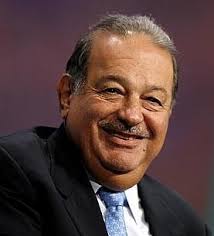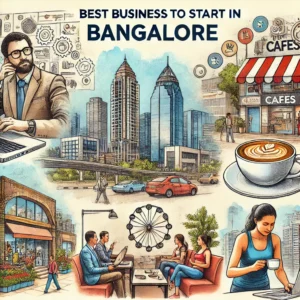In this article of the Entrepreneur Stories by Work Theater, we cover Carlos Slim’s inspiring journey and the key takeaways that budding entrepreneurs can learn from him.
Carlos Slim, a Mexican business magnate, investor, and philanthropist, was once considered the richest person in the world. With a diverse range of holdings in various industries, including telecommunications, real estate, and finance, Slim’s business prowess has left a lasting legacy. In today’s episode of Entrepreneur Stories, we will explore Slim’s early days, struggle, rise to prominence, and legacy.
- The Early Days
Born on January 28, 1940, in Mexico City, Carlos Slim Helú was the son of Lebanese immigrants. His father, Julián Slim Haddad, established a successful retail and real estate business in Mexico. From an early age, Slim was exposed to the world of commerce, as he often accompanied his father to business meetings and helped at the family store. By the age of 12, Slim had already purchased his first shares in a Mexican bank, signaling the beginning of a lifetime in business.
- Education and First Steps in Business
Slim attended the National Autonomous University of Mexico (UNAM), where he studied civil engineering. It was during this time that he developed a deep understanding of mathematics, which he later applied to his investment strategies. After graduating, Slim began working as a stock trader and started his own brokerage firm, Inversora Bursátil. In 1965, he founded Inmobiliaria Carso, the foundation of his future conglomerate Grupo Carso.
- The Struggle
Despite early success, Slim faced his share of challenges. The Mexican economy was volatile, and many businesses struggled to survive amidst recurring financial crises. Slim’s first significant test came during the 1982 Mexican debt crisis when the government nationalized the country’s banking system. However, Slim managed to navigate the crisis by restructuring his debt and continuing to invest in undervalued assets.
- The Rise to Prominence
Slim’s rise to prominence began in the late 1980s and early 1990s when he started acquiring numerous businesses, including Telmex, the Mexican state-owned telecommunications company. By privatizing Telmex and transforming it into a more efficient, profitable enterprise, Slim gained a near-monopoly in Mexico’s telecommunications sector. This move laid the foundation for América Móvil, now one of the largest telecommunications companies in Latin America.
- Diversification and Expansion
Slim didn’t limit himself to the telecommunications industry. He diversified his investments, acquiring stakes in various industries, including finance, retail, and construction. His investment strategy was focused on buying undervalued companies and turning them around, a tactic that helped him amass an enormous fortune. Over the years, Slim’s business empire expanded not only in Mexico but also throughout Latin America, the United States, and Europe.
- The Legacy of Carlos Slim
Carlos Slim’s business acumen and vast wealth have left an indelible mark on the global business landscape. His success has inspired countless entrepreneurs worldwide, and his philanthropic efforts have made a significant impact in areas such as healthcare, education, and the arts. Slim’s commitment to creating lasting value has earned him a place among the world’s most influential business leaders.
- The Philanthropy
Slim’s philanthropic efforts are primarily channeled through the Carlos Slim Foundation, which has contributed over $4 billion to various causes. The foundation focuses on healthcare, education, sports, and the arts, aiming to improve the quality of life for people in Mexico and around the world. Among its many initiatives are the construction of hospitals, the establishment of digital libraries, and the funding of cultural projects.
- The Criticism
Despite his success and philanthropy, Slim has faced criticism for the concentration of wealth and power in his hands. Critics argue that Slim’s near monopoly in the Mexican telecommunications sector has stifled competition and hindered the country’s economic growth. Some have even dubbed him the “modern-day Rockefeller.” However, Slim has consistently defended his business practices, asserting that his investments have created jobs and opportunities for millions of people.
- The Future
As Carlos Slim approaches his 80s, questions about the future of his empire have arisen. His children and close associates have gradually taken on more responsibilities within the conglomerate. Despite the challenges that lie ahead, Slim’s legacy as a shrewd investor and business magnate will undoubtedly continue to influence generations of entrepreneurs to come.
Now, let’s delve into the 27 key learnings from Carlos Slim’s business philosophy, illustrated by examples and quotes.
- Embrace frugality: Slim is known for his modest lifestyle, despite his wealth. He believes in reinvesting profits into his businesses and philanthropy rather than indulging in extravagance.
- “When you live for others’ opinions, you are dead.” Slim emphasizes the importance of self-reliance and trusting your instincts in business.
- Focus on long-term value: Slim has always prioritized long-term gains over short-term profits, which has helped him weather economic downturns.
- “In business, you invest when things are not in good shape.” Slim’s contrarian approach to investing has enabled him to buy undervalued assets and turn them around.
- Diversification: Slim’s investments span various industries, reducing risk and maximizing opportunities for growth.
- “Competition makes you better, always, always makes you better, even if the competitor wins.” Slim recognizes the value of competition in driving innovation and improving business practices.
- Adaptability: Slim has shown an ability to adapt to changing economic conditions, which has allowed him to thrive in a volatile business environment.
- “In this new wave of technology, you can’t do it all yourself; you have to form alliances.” Slim emphasizes the importance of collaboration and strategic partnerships in business.
- Capitalize on crises: Slim’s ability to take advantage of economic crises has helped him acquire valuable assets at discounted prices.
- “Success is not about doing things well or even very well, or being acknowledged by others. It is about the human spirit.” Slim believes that success is rooted in one’s personal values and determination.
- Invest in human capital: Slim’s businesses prioritize employee development, offering training and educational opportunities to foster growth and innovation.
- “The key is the Internet. The United States is by far the most advanced country in this new digital culture, and we want to be a part of it.” Slim has always been keen on embracing new technologies and integrating them into his business strategies.
- Empower your team: Slim encourages his employees to take on responsibilities and make decisions, fostering a sense of ownership and motivation.
- “You cannot make thousands of universities or hundreds of thousands of professors, but with technology and the Internet, you can have great courses and make a digital university.” Slim recognizes the potential of technology to democratize education and create opportunities for all.
- Focus on the customer: Slim’s businesses prioritize customer satisfaction, offering high-quality products and services at competitive prices.
- “The fruit of wealth is income.” Slim emphasizes the importance of generating consistent income streams from investments.
- Discipline: Slim’s disciplined approach to investing and managing his businesses has been a critical factor in his success.
- “The biggest things in life are not materials.” Slim believes that personal fulfillment comes from meaningful relationships and experiences, not material possessions.
- Leverage expertise: Slim surrounds himself with knowledgeable advisors and seeks their counsel in making informed business decisions.
- “When there is a crisis, that’s when some are interested in getting out, and that’s when we are interested in getting in.” Slim’s willingness to invest during difficult times has allowed him to capitalize on opportunities others may have overlooked.
- Be patient: Slim’s long-term investment strategy requires patience, as it often takes time for the true value of his investments to be realized.
- “Inflation makes you poorer.” Slim understands the negative impact of inflation on wealth and the importance of preserving purchasing power through smart investments.
- Vertical integration: Slim’s businesses often benefit from vertical integration, which allows for greater control and efficiency in the supply chain.
- “The only way you finish with poverty is with jobs.” Slim believes that job creation is the most effective way to combat poverty and improve living standards.
- Take calculated risks: Slim’s success is partly due to his willingness to take calculated risks when investing in new ventures or expanding his businesses.
- “Mistakes are normal and human. Make them small, accept them, correct them, and forget them.” Slim encourages learning from mistakes and using them as an opportunity for growth.
- Stay curious: Slim’s insatiable curiosity and desire to learn have enabled him to stay ahead of the curve in an ever-changing business landscape.
In conclusion, Carlos Slim’s journey from humble beginnings to the pinnacle of global business success offers invaluable lessons for aspiring entrepreneurs. His disciplined, long-term investment approach, willingness to take calculated risks, and commitment to creating value for society have cemented his status as one of the most influential business magnates in history.
Thank you for joining us in this blog of Entrepreneur Stories, where we explored the life and legacy of Carlos Slim. Stay tuned for our next entrepreneur story, where we’ll dive into the journey of another remarkable business leader. Remember to subscribe to our YouTube channel Work Theater Studios, so you don’t miss any future episodes!
Did you know? Entrepreneurs like to use our coworking space in Bangalore.
Learn more about our workspace on YouTube where we talk about a variety of topics including personal finance, entrepreneurship, business and life.
Did you know? We also have a private theatre in Bangalore.




